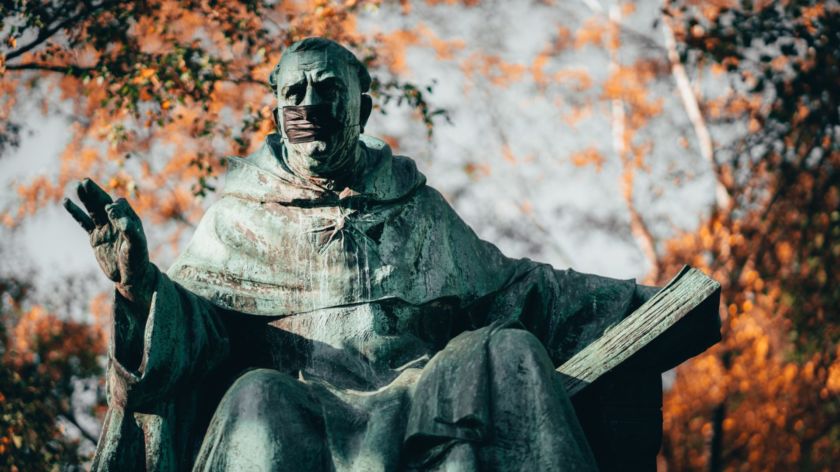Facemask in higher education soon to no longer be mandatory
-
 Thomas van Aquino. Photo: Johannes Fiebig
Thomas van Aquino. Photo: Johannes Fiebig
Little will soon remain of the covid restrictions in higher education: this Friday lecture halls return to their full capacity and from February 25 wearing a facemask on campus is no longer mandatory.
‘Our country is going to reopen,’ said minister Ernst Kuipers yesterday evening during what for now will be the last covid press conference. Hospital admissions are no longer increasing as fast as the number of covid infections. And that leads to easing a lot of restrictions.
The restrictions will be eased in phases. Effective immediately, people are allowed to receive as many guests at home as they want to. And the advice to work from home as much as possible has change into work from home for at least half of your working time.
Coming Friday
This Friday even more will change. Cafes and restaurants can stay open till 1 o’clock at night and wearing a facemask and keeping distance is no longer mandatory at places where a covid entry permit is required. On campus – where a covid entry permit is not required – people will thus be required to wear a facemask.
The advice to isolate yourself after a positive test will be shortened to 5 days, assuming you have been free of symptoms for at least 24 hours. Furthermore, there no longer is maximum number of visitors and guests that cafes, restaurants, museums, and theatres can have. That also means lectures with more than 75 students are once again possible.
From February 25 onwards
The last step is taken on February 25. All regular opening hours will once again be in effect and the corona entry permit is no longer required at locations with less than 500 people. At places where more than 500 people come together without mandatory seating, everyone (vaccinated or not) will be required to show a negative covid test result.
‘We’re happy online education is coming to an end’
Keeping one-and-a-half metres distance is also no longer mandatory. And a facemask will only need to be worn in public transit and at airports ‘to offer vulnerable people the chance to travel safely’. For higher education, other things were apparently taken into consideration.
Happy
Student organisations are happy with the restrictions being eased. ‘For many students, education has been online for a long time. We’re happy that is now coming to an end,’ says chair of the Dutch Student Union Ama Boahene. Lisanne de Roos, chair of the Dutch National Student Association, also thinks ‘we’re better off with restrictions to physical education’.
De Roos does make a reservation: the damage done by covid hasn’t magically disappeared and there will be students who are nervously excited to be among fellow students in a full lecture hall. ‘All those voices and worries deserve to be heard. “Happily ever after” doesn’t apply to all students.’



